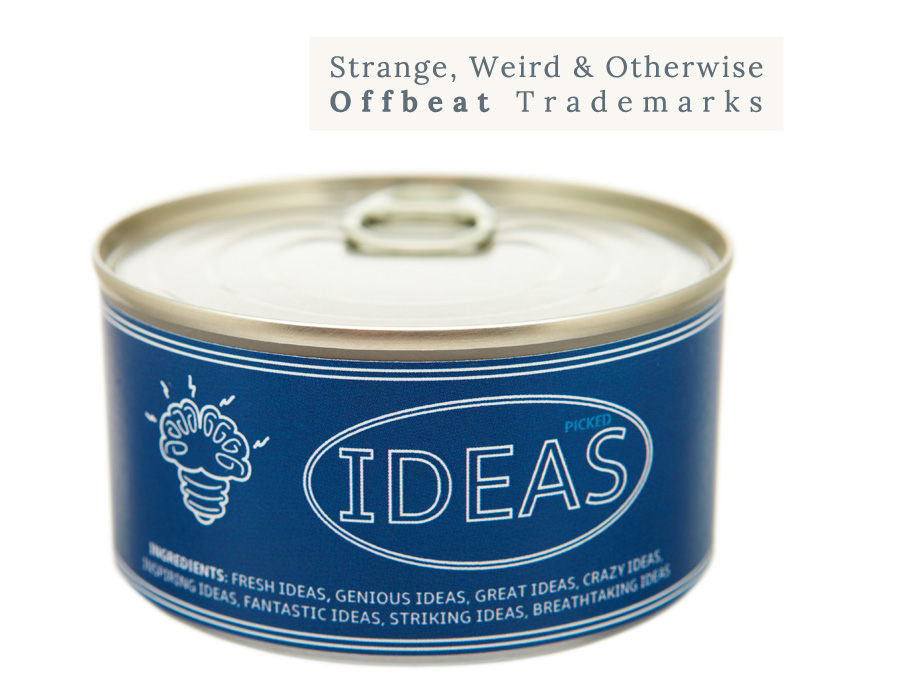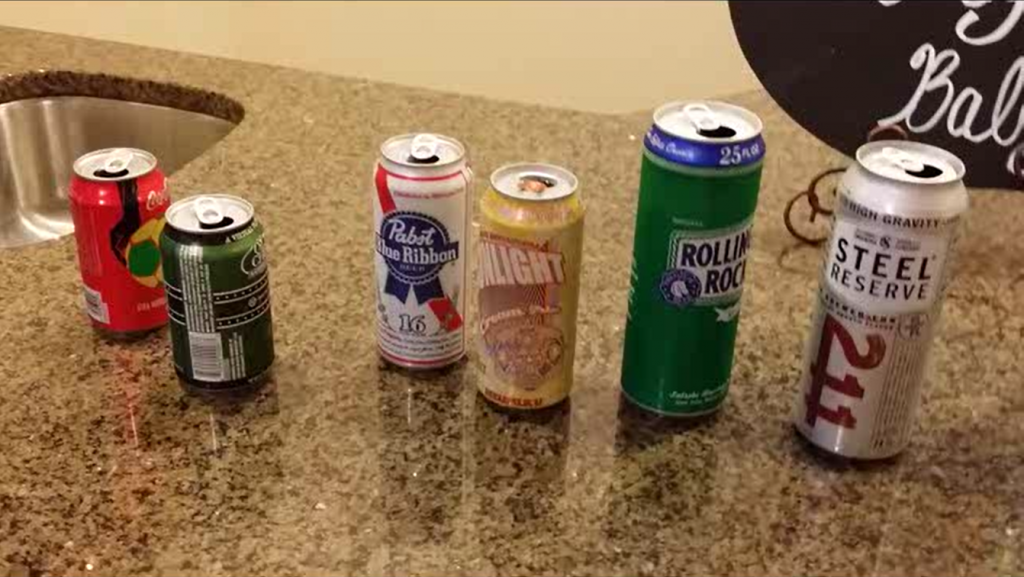Odd and Offbeat Trademark Filings

Almost anything can act as a trademark. A sound, a smell, even a motion. Anything that is capable of distinguishing a distinct source of a product or service can be registered as a trademark. With this being the case, there are some pretty odd and peculiar trademark applications that get filed with the United States Patent and Trademark Office. Here are five of our favorite offbeat trademark applications.
1. Anheuser-Busch Filed a Trademark Application for the Sound of a Beer Can Opening
Anheuser-Busch InBev S.A., the mega-company that owns some of the biggest beer brands in the world, attempted to register the sound of a beer can opening. On March 11, 2013, A-B filed U.S. trademark serial number 85/872,961 for beer. The description provided to the USPTO was that “the mark consists of a clicking sound, followed by a period of silence, followed by a deeper clicking sound.”

The USPTO was having none of it. The Examining Attorney assigned to examine the application ultimately denied the application because it failed to function as a trademark—it was simply a sound that emanated from the normal course of opening a beer. The USPTO also offered an alternative to A-B’s ‘vague’ description—they recommended changing the description to “The mark is a sound. The mark consists of the sound of a pressurized beverage can being opened, followed by the opener being struck back against the top of the can.”
In what might be a USPTO first, the Examining Attorney provided a demonstration of his own. In a video recording, the Examining Attorney lines up five cans of beer and a can of Coca-Cola in his basement. He then goes one by one, opening each of the cans, showing that all of these cans sound exactly the same when opened. “Unfortunately,” the Examining Attorney explains, he could not get the federal government to pay for the alcoholic beverages, so he had to pay for them himself.
2. Ernie Ball Owns a Trademark for a Guitar Headstock with Four Tuning Pegs on One Side and Two on the Other
Music instrument company Ernie Ball owns the trademark and federal trademark registration for a guitar headstock with five tuning pegs and string posts on the side and two tuning pegs and string posts on the other.
This is a trademark where the average person’s gut reaction is probably “What?!? No one can ‘own’ that!” However, a company can own a trademark in the configuration of its product if, and only if, it can show that it has used the design exclusively, that it isn’t functional for the product, and that consumers recognize that feature as being exclusive to one company (even if it doesn’t know, exactly, that the company is Ernie Ball.)
On January 22, 1991, Ernie Ball registered trademark reg. no. 1632297 for “guitars.” The visual image of the trademark is shown below. Ernie Ball began using this configuration in 1982 and still uses it to this day. To this day, you will not find a widely manufactured guitar from any other company that has the same configuration unless it has been expressly authorized to use it by Ernie Ball, the sign of a truly strong trademark.
3. The New England Patriots Filed a Trademark Application For 19-0…and Then Lost in The Super Bowl
A business can file a trademark application based on an “intent-to-use” which gives businesses the ability to reserve rights up to three years in advance while it finalized business preparations before using the trademark in the marketplace.
The New England Patriot’s owner Kraft Group LLC filed intent-to-use application on January 17, 2008, for ’19-0’ and ’19-0 THE PERFECT SEASON’ for a variety of merchandise and related services. As most sports fans know, on February 3, 2008, the New England Patriots lost to the New York Giants after going undefeated the entire 2008 season.
The best part about these two trademark applications? In a crazy turn of events, several fans jumped in before New England and filed their own intent-to-use applications, effectively stalling New England’s application. As each fan abandoned his or her application, the next fan would get a chance to file theirs. No one ever did, and then, almost five years after the application was first filed, the New England Patriots now have until Oct. 22, 2016 to prove use and, as we approach the next Super Bowl, it doesn’t look like 19-0 will be happening in time.
4. Harley Davidson Tried to Register a Trademark For the Sound of a Revving Engine
Anheuser-Busch isn’t the only company to trying to trademark the sound of its product. In 1998, Harley Davidson filed a trademark application for “exhaust sound of applicant’s motorcycles” on models and figurines, bicycles, and, inexplicably, telephone debit cards.
According to a company spokesman at the time Harley was “looking to register the sound of a Harley-Davidson motorcycle — the sound of a V-twin engine with a single crankpin… we’re not talking about the sound that comes out of the exhaust pipe.”
Harley abandoned the attempt in 1999 after failing to respond to the USPTO’s refusal.
5. Verizon Wireless Owns A Trademark Registration For the “Flowery Musk Scent” of its Verizon Stores (Kind Of)
Like sounds, a company can also own a smell if comes to be synonymous in consumers’ minds with one company. Verizon Wireless applied to register a trademark for the “flowery musk scent” of its Verizon retail stores. The USPTO granted Verizon a registration on the Supplemental Register, which, while it serves as proof that, one day, the smell may be capable of being a protectable trademark, it has not gained the distinctiveness to be awarded full protection by the U.S. government. Not all trademark registrations are created equal – registrants on the Supplemental Register get almost none of the nationwide benefits that registrants on the Principal Register get.
Trademarks come in all forms, but there are many things to consider when trying to protect a “weird” trademark. An experienced trademark attorney, like the attorneys at Gerben IP, can help you make your weird trademark into a strong, well-known brand.
Do you need assistance with a trademark matter?
Contact an Attorney Today
